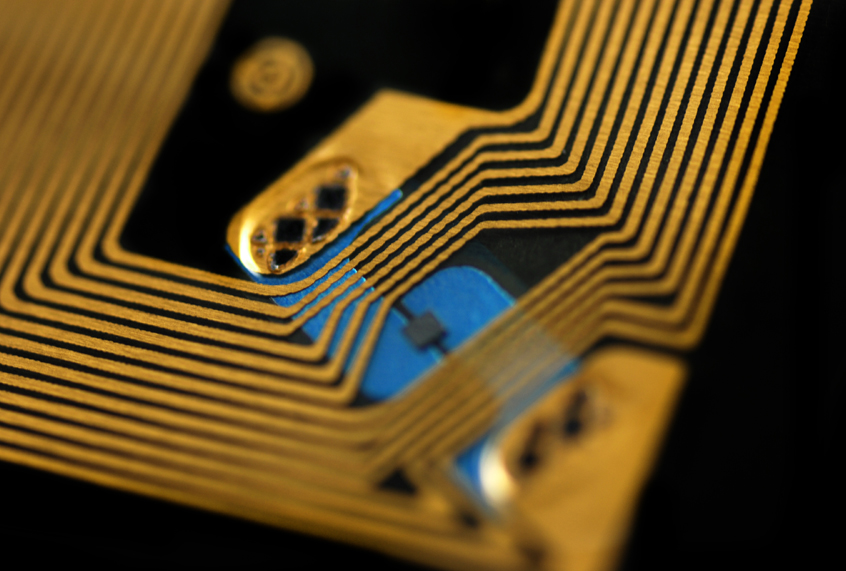This summer ushered in a heap of publicity for Three Square Market, a Wisconsin-based tech company that provides self-service “micro-markets,” as in small-scale convenience stores, to businesses worldwide. A profile in The New York Times. A feature on Katie Couric’s National Geographic series “America Inside Out.” An article in the Washington Post.
The noise in the media would be a dream for any tech company in Silicon Valley. However, this public exposure was not a result of a company product, but rather a new employee perk: Employees at Three Square can have a radio-frequency identification (RFID) chip implanted under their skin, allowing them to purchase snacks, open doors, login to computers and more, simply with the wave of a hand.
While the implants are not mandatory, nearly 50 of the 80 employees at the company’s headquarters were chipped at inaugural “chip party,” where a tattoo piercer conducted the implantation procedure. A journalist at the Guardian got one, too.
Some signs suggest this entire enterprise may have been a publicity stunt: Three Square distributed a press release in late July, seeking coverage about the initiative. In any case, these chip implants raise some interesting questions about the future of work, and whether this is the beginning of an actual trend. A co-working space in Sweden reportedly launched the microchip-implant movement in 2015, serving as an inspiration for Three Square Market.
“We foresee the use of RFID technology to drive everything from making purchases in our office break room market, opening doors, use of copy machines, logging into our office computers, unlocking phones, sharing business cards, storing medical/health information, and used as payment at other RFID terminals,” Three Square Market CEO Todd Westby said in the press release. “Eventually, this technology will become standardized allowing you to use this as your passport, public transit, all purchasing opportunities, etc.”
Darrell West, author of “The Future of Work: Robots, AI, and Automation” and vice president and director of governance studies at the Brookings Institution, told Salon that he hopes we don’t see this emerge as a widespread workplace innovation.
“Few things would be more intrusive than an embedded microchip in a human being,” he told Salon. “The practice raises serious ethical questions if it becomes a condition of work at particular companies. Even if it operates in lieu of passwords or entrance passes, there is considerable potential for abuse.”
Specifically, he said a chip would allow companies to track employees around the clock.
“They could monitor actions at work as well as at home or on the street,” he said. “In addition, since the device operates as a microchip, it would be difficult for employees to know what was being tracked.”
Westby refuted this concern to the New York Times, saying his company’s implant is not a serious invasion of privacy. “All it is is an RFID chip reader,” he said, “not a GPS tracking device.”
Michael Zimmer, director of the Center for Information Policy Research, said the risks is too far great, and the trend is disconcerting.
“Often what appear to be simple technologies to provide benign conveniences shift into becoming infrastructures of surveillance used for purposes far beyond what was originally intended,” Zimmer said. “In the case of implanted RFID chips, we cannot predict how scanning technology might evolve and allow someone to read my embedded chip from a distance.”
READ MORE: Is it time to break up Amazon.com? Here’s how it gets done
What it boils down to is how much trust people should place in their employer, Zimmer added.
“We cannot predict if employers might start tracking how much time someone spends in the break room or the bathroom, or whether one is purchasing too much junk food from the vending machines, or what they might do with such surveillance data,” Zimmer said.
While some have argued that wearable technology is already an invasion of one’s privacy, Zimmer said that smartphones and other wearables are different because the person wearing them can manage what apps are allowed to track.
“I can turn my smartphone off. I can leave it at my desk or at home,” Zimmer said. “I can manage which apps have permission to track my location or activities. But with an embedded chip, I no longer have any ability to control when it gets scanned or by whom. It easily can become a pervasive surveillance technology.”
It is unclear if this idea will catch fire in corporate America, but at Three Square Market, it continues to grow in popularity. The company’s president, Patrick McMullan, told Salon in an email that 30 additional employees have been chipped since the original chip party.


